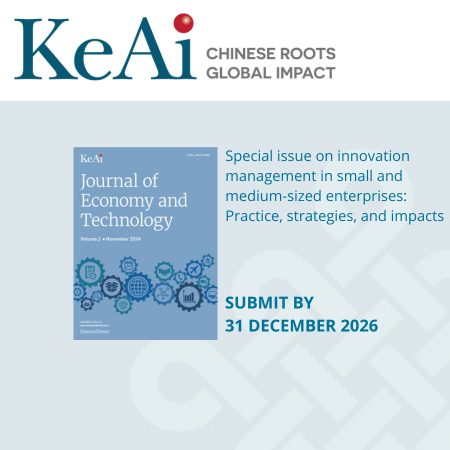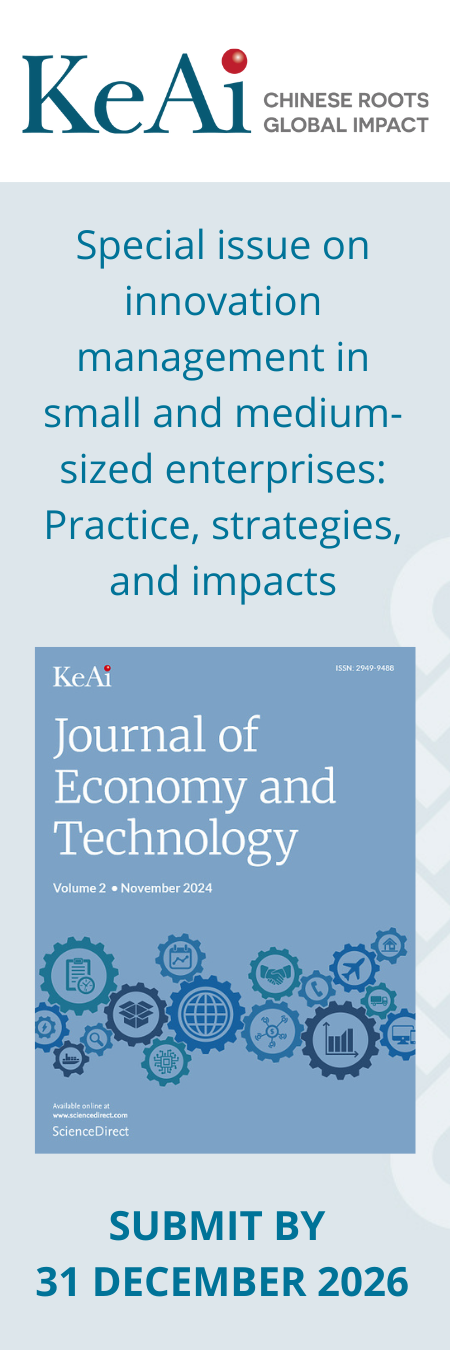A new era in poverty diagnostics: Experiential knowledge from machine learning to improve the efficiency of social programs in combating poverty
2026
Public social programs—conceived as a response to societal demands for broader welfare coverage not only in Brazil but also worldwide—rely heavily on self-reported data from registries of low-income...
Implications of algorithmic bias in AI-driven emergency response systems
2026
In this paper, we introduce a framework to evaluate the economic implications of algorithmic bias specifically for the emergency response systems that incorporate AI. Unlike existing research, which...
A supervised variational autoencoder framework for dimensionality reduction and predictive modeling in high-dimensional socioeconomic data
2026
We introduce an estimation framework utilizing a Supervised Variational Autoencoder (SVAE) to address challenges posed by high-dimensional socioeconomic data. Unlike classical linear dimensionality...
Towards sustainable transport in Visegrád countries: Decomposition of emissions drivers and policy directions
2026
This study addresses a critical research gap in understanding the drivers of transportation emissions in Central Europe by applying the Kaya Identity and Logarithmic Mean Divisia Index (LMDI) methods....
A resource-efficient ensemble machine learning framework for detecting rank attacks in RPL-based IoT networks
2026
The Internet of Things (IoT) links intelligent devices across various sectors, including healthcare, smart cities, and industrial systems, aiming to improve everyday experiences. Despite its benefits,...
An optimization framework for mechanism design in the digital sharing economy
2026
This paper introduces a conceptual framework for optimizing mechanism design in the context of the digital sharing economy. Mechanism optimization aims to identify the most effective mechanism that...
Transforming research with quantum computing
2026
Quantum computing is a novel method of computation that uses the principles of quantum mechanics to handle highly challenging situations in a very short amount of time. Quantum technology has the ability...
A comprehensive review of Artificial Intelligence regulation: Weighing ethical principles and innovation
2026
We present a comprehensive review of Artificial Intelligence (AI) regulation, addressing the challenges and needs associated with governing rapidly evolving AI technologies. We begin by exploring the...
Valuation of a sequential compound option considering electricity generation and transmission expansions
2026
An integrated model considering both generation and transmission expansions is needed for long-term planning in the electrical sector because of the interlinked nature of these decisions. Our paper...
An innovative way of analyzing COVID topics with LLM
2026
In the aftermath of the COVID-19 pandemic, international landscapes have been profoundly reshaped, with shifts in political alliances, economic priorities, and socio-cultural norms. Such evolutions,...
Synergizing transformer-based models and financial sentiment analysis: A framework for generative AI in economic decision-making
2026
This study introduces a new way to analyze financial sentiment by combining advanced transformer-based models with generative artificial intelligence (AI) to better understand the language and context...
The determinants of the Initial Coin Offering (ICO). A cross-country study
2026
This study provides a cross-country analysis of the determinants of Initial Coin Offering (ICO) emergence. Our empirical findings indicate a positive correlation between ICO activity and a country's...
Encrypted intelligence: A comparative analysis of homomorphic encryption frameworks for privacy-preserving AI
2026
This paper presents a comparative study of various homomorphic encryption models to evaluate their qualitative and quantitative benefits and drawbacks in performing computations on encrypted data. Within...
Impact of entrepreneurial leadership on employees’ innovative behavior: A mediation analysis of organizational motivation to innovate and employees’ creativity
2026
Academic literature widely recognizes the importance of entrepreneurial leadership (EL) within agricultural research institutes. However, empirical investigations into how leadership styles influence...
User segmentation under blockchain-based privacy protection
2026
User segmentation is a marketing strategy that allows companies to more accurately position their products and services, thereby enhancing marketing efficiency and customer satisfaction. However, existing...
Advancing environmental sustainability in the G-7: The impact of the digital economy, technological innovation, and financial accessibility using panel ARDL approach
2026
This study examines the impact of the digital economy, technological innovation, financial accessibility, and urbanization on CO2 emissions in the G-7 region from 1990 to 2019. The analysis employed...
AI-based decision support systems in Industry 4.0, a review
2026
The development of modern technologies such as the Internet of Things (IoT), cloud computing, and artificial intelligence (AI) resulted in a new era of industrial automation and data interchange, which...
A framework for integrating GPT into geoscience research
2026
Natural disasters like landslides and landfalls have a detrimental effect on global economy. Recent landslide research has heavily relied on textual and image datasets, particularly from sources like...
Unveiling the three-dimensional ecological footprint dynamics in the era of technological revolution
2026
This study integrates technological innovation and economic growth into the environmental degradation function for India. Unlike prior studies, it uses the three-dimensional ecological footprint as...
Evaluating machine learning performance using python for neural network models in urban transportation in New York city case study
2026
This study investigates neural network performance optimization for New York City taxi trip duration prediction to address critical gaps in transportation machine learning, where reproducibility, comprehensive...
Who Should Bear the Returns? Optimal Contract Design in Live-Streaming E-Commerce
Available online 23 February 2026
This study investigates contract design and channel coordination in live-streaming e-commerce under uncertain product fit and return risk. We develop a game-theoretic framework comparing three return-cost...
Strategies to achieving deep decarbonisation in power generation: A review
November 2025
Transitioning to low-carbon power generation is crucial for combatting climate change and achieving sustainability goals. This review delves into the literature on deep decarbonisation strategies within...
Business confidence in the shift to renewable energy: A country-specific assessment in major Asian economies
November 2025
The growing awareness of the importance of transitioning to sustainable energy sources emphasizes the necessity of fostering business optimism toward renewable energy, as businesses wield significant...
Advanced computational methods for news classification: A study in neural networks and CNN integrated with GPT
November 2025
In an era inundated with vast amounts of information, the imperative for efficient news classification is paramount. This research explores the sophisticated integration of neural networks and convolutional...
Deciphering algorithmic collusion: Insights from bandit algorithms and implications for antitrust enforcement
November 2025
This paper explores algorithmic collusion from both legal and economic perspectives, underscoring the increasing influence of algorithms in firms’ market decisions and their potential to facilitate...


